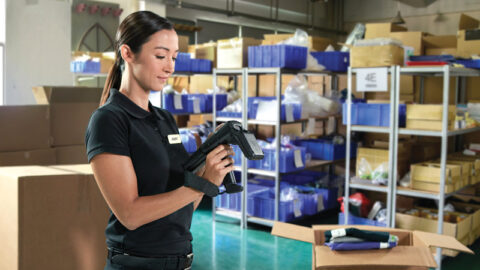Barcode labeling is a visual system that requires direct visibility of the barcode. This can be overly complex and slow down processes because access to the information is imprecise. Various industries, such as warehousing and distribution, food processing, medical devices and pharmaceuticals, have strict regulations and tracking requirements.
With a variety of options when choosing RFID readers and software, the transition to RFID can be seamless for employees. Create a comprehensive operational ecosystem that keeps you at the forefront of your industry.
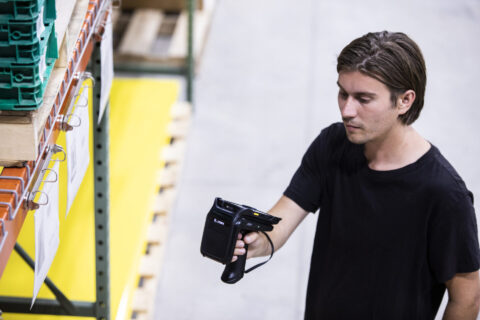
RFID technology for production and warehouse/distribution
In 1901, the U.S. Department of Commerce created the National Institute of Standards and Technology (NIST) to provide technology and standards that would benefit U.S. industry, such as product labeling requirements, units of measurement, safety standards, etc. Failure to comply with these regulations can lead to large fines and deductions for refused shipments (the latter alone can be as high as $8,000).
Omnichannel commerce complements product ordering by simplifying the process of creating an order, which benefits consumers and meets their needs through a variety of options. Online, on mobile devices, in person or over the phone – consumers have more ways than ever to order products, which translates into more sales. It is critical to a company’s bottom line and reputation that consumers have a seamless customer experience.
Omnichannel retailing increases product orders by offering consumers multiple ways to benefit and satisfy. Whether online, mobile, in-store or over the phone, consumers have more ways than ever to order products, which translates into more sales. It is critical to a company’s bottom line and reputation that consumers have a seamless customer experience.
Traceability
RFID tracking enables traceability (precise tracking) of products in the warehouse and of items moving through the workflow or supply chain. This makes it easy to track the status of a product as it moves through the production process, such as which workstation it is at.
It provides real-time visibility of the product without the need to actively scan the visible barcode at each stage. RFID solution in Pakistan tracking helps maximize theft protection by tracking the location of tagged items.”
Data Storage
RFID tags support the manufacturing process by containing all relevant data during and after the manufacturing of a product, such as the date and time the RFID tag was created and placed on the product, the date of manufacture, the line on which the product was manufactured, whether the product is a work-in-process (WIP) and what stage of the process the product is in.
Tracking this information is important to ensure that automation processes are running efficiently and correctly on the factory floor. Because this information is centralized on RFID tags, quality checks can be performed more quickly and easily. This information will ultimately help to reduce lead times and further automate the production process.
Increased efficiency
This advanced technology helps minimize errors and non-compliance by reducing manual handling during distribution and warehousing. RFID can also help address labor shortages caused by increased production.
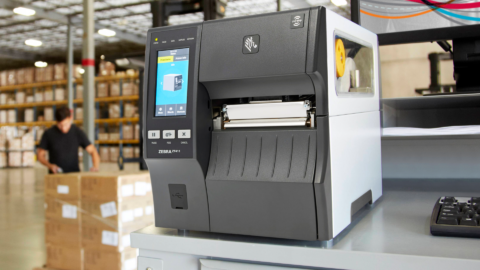
By locating specific products using RFID, picking, packing and delivery times can be minimized, contributing to greater efficiency and ultimately making the process (cross-docking, warehousing, etc.) more accurate and less cumbersome. Forklifts can be equipped with RFID technology to facilitate the location, identification and movement of larger and heavier items.
RFID FOR FOOD SERVICE INDUSTRY
The U.S. Food and Drug Administration (FDA) mandates the use of a Unique Device Identification (UDI) system on barcode labels for food and beverages in the United States, from production to consumption. These labels must be readable by both humans and machines (scanners).
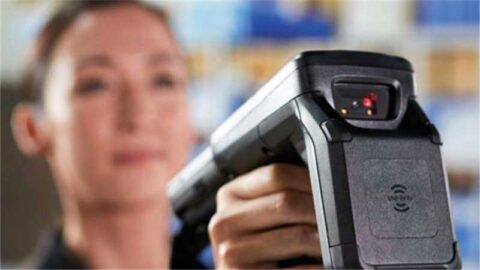
Traceability
If labels are not produced according to UDI standards, companies face not only fines and returns. Using RFID technology to track this information not only complies with UDI regulations, but also helps with product recalls due to foodborne illnesses and other conditions, making the process more efficient for companies.
Keeping stock on grocery store shelves can be a challenge these days, but with RFID, managing inventory at the item level is much easier for staff. From picking and stocking items to ordering from suppliers and helping customers find exactly what they are looking for.
As people shop for food in stores, online and through mobile devices, it is important to manage their inventory. RFID also helps prevent waste by ensuring that the right products and only the right quantities are ordered.
RFID FOR MEDICAL DEVICES
The U.S. Food and Drug Administration (FDA) also requires the use of a Unique Device Identification (UDI) system on medical barcode labels. The U.S. Food and Drug Administration (FDA) also requires the use of a Unique Device Identification (UDI) system on medical barcode labels. These labels must be both human and machine (scanner) readable.
If the labels do not meet UDI standards, the company not only faces fines and returns. Private label retailers expose themselves to the possibility of legal risks, which impacts patient safety.
Easier tracking
Tracking this information using RFID technology is not only a matter of UDI compliance, it is also useful:
- Accountability
- Medical device tracking
- Patient information
- Professionals keeping track of e-health recordings
- Documentation on a specific drug (e-pedigree)
Ultimately, this technology can help healthcare professionals save time when scanning compared to manual input methods, thereby reducing the risk of human error and saving time. This can help modern healthcare keep up with the times.
RFID FOR PHARMACEUTICALS
The U.S. Food and Drug Administration (FDA) also requires the use of Unique Device Identification (UDI) on barcode labels in the medical field. These labels must be human and machine readable (scanners). If labels do not meet UDI standards, companies face more than just fines and refunds. Private label retailers are exposed to legal risks that affect patient safety and liability tracking.

Ease of complying with global serialization requirements.
How do pharmaceuticals differ from medical devices when it comes to RFID? In addition to the UDI regulatory standards, pharmaceuticals have to meet other global serialization requirements.
The US, EU, China and Brazil have specific serialization requirements, and many other countries will follow suit. Examples of these requirements are DSCSA, FMD and 21 CFT Part 11.
![]()
The United States, European Union, China, and Brazil have specific serialization requirements, with more countries joining to include this requirement. Examples of these requirements include DSCSA, FMD, and 21 CFT Part 11.
Ultimately, this technology can help healthcare workers save time when scanning versus manual entry methods, which can mean less risk of human error and time savings. This can help today’s healthcare sector keep up with the times.
Real-Time Asset Tracking
RFID enables real-time tracking of healthcare goods, allowing for more efficient tracking of medications, more efficient pharmacy management, prevention of physician errors, and limited access control to ensure the safety of goods. In addition, RFID supports the distribution of vaccines, for which there is growing demand.
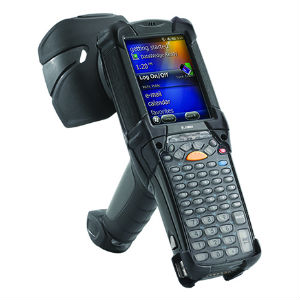
IMPRINT ENTERPRISES IS THE RFID SPECIALIST AT ZEBRA TECHNOLOGIES
Thinking of migrating to a new technology?
Imprint Enterprises can help make the discussion and transition to Zebra Technology partner in Pakistan RFID technology painless and seamless, giving your business a technological advantage in all available markets.
Reduce time spent tracking inventory and improve accuracy in locating items. Automation through RFID technology can help solve labor shortages and simplify inventory management.
Ensuring compliance with industry regulations and minimizing the possibility of chargebacks and fines makes a big difference to a company’s bottom line. And with the numerous hardware and software options available, almost any company can benefit from RFID technology.
